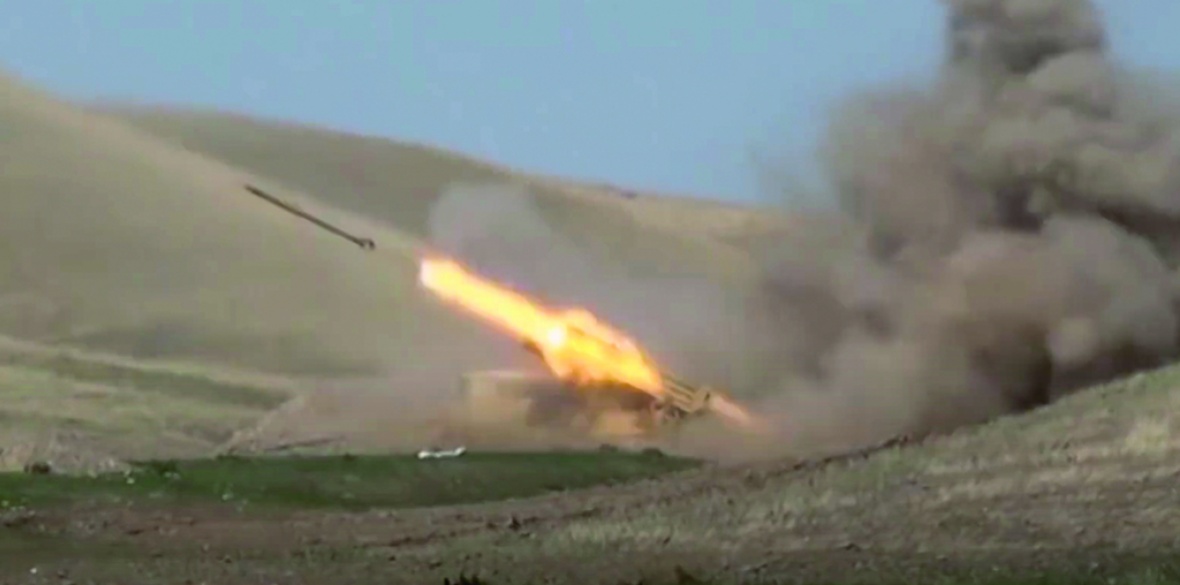This is the last article you can read this month
You can read more article this month
You can read more articles this month
Sorry your limit is up for this month
Reset on:
Please help support the Morning Star by subscribing here
ARMENIA and Azerbaijan continued to fight over the disputed Nagorno-Karabakh region today in the heaviest clashes in years, with dozens of people reportedly killed.
The mountainous region is internationally recognised as part of Azerbaijan but has been governed by ethnic Armenians since the war in 1994.
The region’s authorities said 31 of its soldiers had now died, and some lost positions had been retaken.
Azerbaijan said its forces had inflicted “heavy losses” and that Armenian shelling had injured 26 civilians.
Fighting spread on Sunday morning after Armenia’s defence ministry said that an attack on civilian settlements in the region had begun, resulting in 19 deaths, including a woman and child, and leaving 100 wounded.
Armenian Prime Minister Nikol Pashinyan accused Azerbaijan of “planned aggression.”
He warned that the region was on the brink of a “large-scale war” and urged the international community to unite to prevent further destabilisation.
Armenian Foreign Minister Zohrab Mnatsakanyan accused Azerbaijan of sabotaging a peaceful settlement to the conflict and insisted that Armenia must defend the region.
Azerbaijan’s President Ilham Aliyev said that he was confident of regaining control over the region.
Martial law has been declared amid the violence in some parts of Azerbaijan, Armenia and Nagorno-Karabakh.
The casualty claims have not been independently verified.
Turkish President Recep Tayyip Erdogan has pledged his support for Azerbaijan — the countries have close ties — and Armenia has accused Turkey of providing direct military support for Azerbaijan, a claim denied by Azerbaijan.
UN secretary-general Antonio Guterres said he was “extremely concerned” over clashes and called for both sides to stop fighting. France and Russia called for an immediate ceasefire and dialogue, while Iran, which borders both countries, offered to broker peace talks. President Donald Trump said the United States was seeking to stop the violence.
The region is rich in oil and gas reserves and important pipelines, drawing attention from imperialist nations for years.
Nagorno-Karabakh broke away from Azerbaijan in the early 1990s after years of bloody war that resulted in about 30,000 deaths and an estimated one million people being displaced following the collapse of the Soviet Union, of which both countries were republics.
The region was left in control of ethnic Armenians following the signing of a truce in 1994 and many Azeris were forced to flee their homes. Since then, periods of hostilities have erupted, with at least 200 people killed in 2016.











